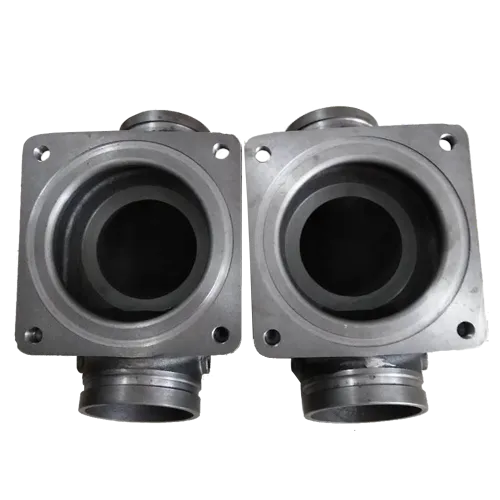Mobile:+86-311-808-126-83
Email:info@ydcastings.com
impeller turbine mass flow meter
Impeller Turbine Mass Flow Meters An Overview
In the world of fluid measurement, precision and reliability are paramount, especially in industrial applications where efficiency directly correlates with productivity. One type of flow meter that has gained prominence is the impeller turbine mass flow meter. This device merges the traditional principles of turbine flow measurement with modern mass flow technology, providing accurate data that is crucial for various industries, including oil and gas, water treatment, and food processing.
Understanding the Impeller Turbine Mass Flow Meter
An impeller turbine mass flow meter operates based on the principles of fluid dynamics and rotation. The main components include an impeller, a turbine, and a mass flow sensor. When fluid enters the meter, it impacts the impeller blades, causing them to rotate. The rate of rotation is directly proportional to the flow rate of the fluid passing through the meter.
What sets this device apart from standard turbine flow meters is the incorporation of a mass flow sensor, which measures the mass flow rate rather than just the volumetric flow. This capability is essential, particularly when dealing with fluids that vary significantly in density, as it ensures that the measurements remain accurate regardless of temperature and pressure fluctuations.
Advantages of Using Impeller Turbine Mass Flow Meters
1. High Accuracy One of the primary advantages of impeller turbine mass flow meters is their ability to provide highly accurate measurements. This accuracy is essential for industries where precise measurements can lead to significant cost savings and efficient operations.
2. Wide Range of Fluid Compatibility These flow meters can handle various types of fluids, including clean liquids, gases, and even some slurries. This versatility makes them suitable for diverse applications across multiple sectors.
impeller turbine mass flow meter

3. Real-Time Data The integration of mass flow sensing technology allows for real-time data acquisition. This feature enables operators to make informed decisions on-the-fly, improving overall operational efficiency.
4. Robustness Designed to withstand harsh industrial environments, impeller turbine mass flow meters are often constructed from durable materials that resist corrosion and wear. This robustness translates to a longer lifespan and reduced maintenance costs.
5. Ease of Integration With advancements in communication technology, many impeller turbine mass flow meters offer digital outputs, making it easy to integrate them with existing control systems. This integration capability enhances monitoring and control processes in industrial operations.
Applications of Impeller Turbine Mass Flow Meters
The applications for impeller turbine mass flow meters are vast. In the oil and gas sector, they are used for measuring the flow rates of hydrocarbons during extraction and transportation. In the water treatment industry, these meters help in monitoring and controlling the flow of treated water. Additionally, in food processing, accurate flow measurement is crucial for ensuring consistency and quality in production processes.
Conclusion
In conclusion, impeller turbine mass flow meters represent a significant advancement in flow measurement technology. Their high accuracy, compatibility with various fluids, and ability to provide real-time data make them indispensable tools in many industrial applications. As industries continue to evolve and demand more efficient and precise measurement solutions, the impeller turbine mass flow meter is poised to play an increasingly vital role in optimizing processes and enhancing productivity. Organizations looking to improve their measurement systems would do well to consider these innovative devices, ensuring they remain competitive in today’s fast-paced market.
-
Understanding Metal Casting TechniquesNewsApr.02,2025
-
Understanding Exhaust Manifolds for Enhanced Engine PerformanceNewsApr.02,2025
-
The World of Metal FabricationNewsApr.02,2025
-
Key Components for Pump and Turbo EfficiencyNewsApr.02,2025
-
Essential Tools for Automotive Maintenance and RepairNewsApr.02,2025
-
Durable Valve Components for Effective Water ManagementNewsApr.02,2025











